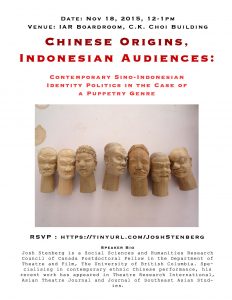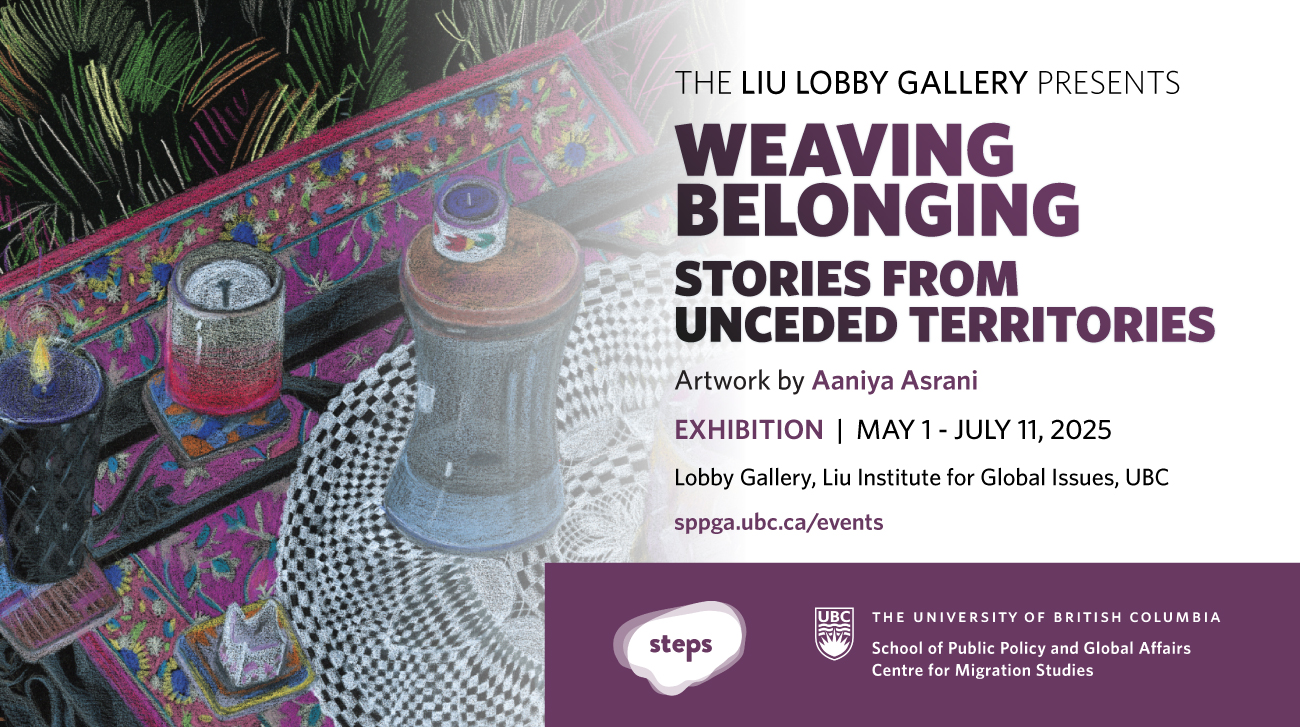

Type: Brownbag lunch talk
Abstract
This presentation examines wayang potehi, a cloth glove puppet theatre of southern Fujian origin performed in Indonesian on Java among ethnic Chinese. Rooted in temple-based ritual puppetry practice, potehi (along with other public displays of Chinese culture) arrived on Java in the 18thcentury and was a feature of many Sino-Javanese communities in the 19th and 20th centuries. Largely suppressed during Suharto’s New Order period (1965-98), it has become increasingly prominent in the Reformasi period (1998-), during which Chinese public displays and cultural identity have experienced a resurgence. While more traditional temple-based performance persists, much contemporary potehi patronage exhibits the strategies of the mixed-culture non-Chinese-speaking communities of East and Central Java to perform a streamlined, integrationist, and loyal Sino-Indonesian identity. This includes village outreach, combination with Javanese arts, and prominent patriotic displays, although the material aspect of puppetry shows and the narratives have remained relatively similar to the Fujian ancestral form. Wayang potehi allows Sino-Indonesian patrons and communities to integrate their activities into core concepts of Indonesian identity (i.e. wayang) while retaining ethnic and religious. As such, new wayang potehi practices are committed to an idea of Indonesia as a multicultural nation of which the Chinese are a constituent group.
About the Speaker
Josh Stenberg is a Social Sciences and Humanities Research Council of Canada Postdoctoral Fellow in the Department of Theatre and Film, The University of British Columbia. Specialising in contemporary ethnic Chinese performance, his recent work has appeared in Theatre Research International, Asian Theatre Journal and Journal of Southeast Asian Studies.
Please RVSP here.
